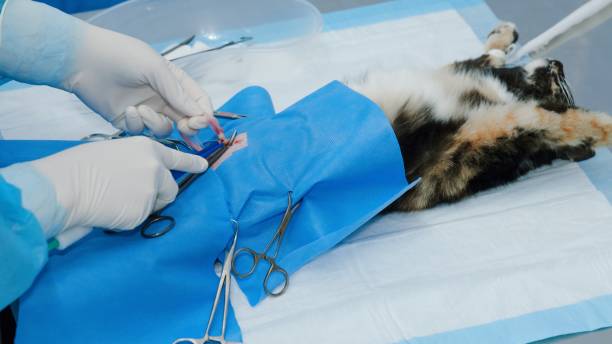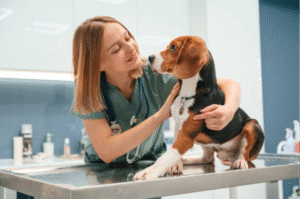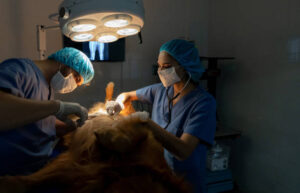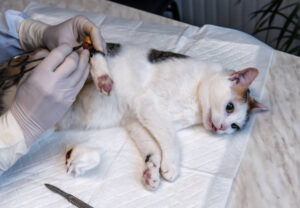Finding the best neuter clinic for your pet is essential for ensuring a safe, healthy, and stress-free procedure. Neutering is an important step in maintaining your pet’s long-term well-being and preventing unwanted health or behavioral issues. If you are looking for a trusted Renton animal clinic, choosing a facility with experienced staff and proper surgical protocols can make a significant difference in your pet’s recovery and overall care.
Whether this is your first time neutering a pet or you have experience with the process, selecting the right clinic requires careful consideration. In this guide, we will walk you through everything you need to know to find the best neuter clinic for your furry companion, from reputation and safety standards to aftercare and affordability.
Why Neutering is Important for Pets
Neutering, also known as spaying for females and castration for males, is more than just a routine procedure. It offers multiple health and behavioral benefits for pets. Some of the most important reasons to neuter your pet include:
- Reducing the risk of reproductive cancers: Neutering prevents conditions like testicular cancer in males and uterine or ovarian cancer in females.
- Preventing unwanted litters: Overpopulation is a serious issue, and neutering helps reduce the number of stray or abandoned pets.
- Decreasing aggressive or territorial behavior: Neutered pets are often calmer and less likely to engage in fights or display dominance aggression.
- Reducing the likelihood of infections and diseases: Neutering lowers the risk of uterine infections and prostate problems in pets.
Veterinarians recommend neutering at a safe age depending on the breed, size, and overall health of your pet. Consulting a professional ensures the procedure is performed at the optimal time for maximum benefit.
Key Considerations When Choosing a Neuter Clinic
Finding the best neuter clinic involves more than choosing a convenient location. Several key factors affect the quality of care your pet will receive.
1. Experience and Credentials of Veterinarians
The expertise of the veterinarian performing the procedure is one of the most important factors. Experienced vets can handle unexpected complications and ensure the procedure is as stress-free as possible for your pet. When evaluating a clinic:
- Verify the veterinarian’s license and specialized surgical training.
- Check how many neutering procedures the clinic performs each month.
- Read reviews or testimonials from previous clients to gauge satisfaction.
A skilled veterinarian not only reduces surgical risks but also provides guidance for post-operative care, giving you confidence in your pet’s recovery.
2. Clinic Facilities and Equipment
Modern, well-equipped clinics are more likely to provide a safe and sterile environment for neutering. Facilities should have:
- Clean, sterile surgical rooms.
- Up-to-date anesthesia monitoring equipment to ensure safety during surgery.
- Comfortable recovery areas with proper temperature control and ventilation.
A clinic with high-quality equipment and clean facilities minimizes the risk of infection and promotes faster healing.
3. Affordability of Neutering Services
Neutering is an important medical procedure, but cost is a consideration for many pet owners. When evaluating affordability:
- Compare pricing among multiple veterinary clinics in your area.
- Ask about discounts for multiple pets or community spay/neuter programs.
- Inquire whether financial assistance is available for families in need.
Affordable neutering doesn’t mean compromising quality. Many reputable clinics, like the best neuter clinic, offer cost-effective options without sacrificing care.
4. Aftercare and Support
Proper post-operative care is essential for a smooth recovery. The clinic should provide clear instructions and support, including:
- Guidelines for monitoring your pet for signs of infection or complications.
- Instructions on feeding, activity levels, and administering medications.
- Emergency contact information if issues arise outside of office hours.
Some clinics even provide follow-up appointments to ensure your pet is healing as expected, which can significantly improve recovery outcomes.
Questions to Ask Before Booking a Neutering Appointment
Asking the right questions helps you determine whether a clinic is trustworthy and reliable. Consider asking:
- How many neutering procedures are performed daily?
- Who will perform the surgery, and what are their qualifications?
- What type of anesthesia and pain management protocols are used?
- What post-operative care and follow-up services are offered?
Clear answers to these questions give you peace of mind and help you feel confident in your choice of clinic.
Choosing a Clinic That Prioritizes Safety
Safety should always be a top priority when selecting a neuter clinic. Look for clinics that follow strict hygiene and surgical protocols:
- Use sterile surgical instruments for each procedure.
- Monitor anesthesia carefully throughout the operation.
- Ensure recovery areas are clean and comfortable.
A clinic that prioritizes safety demonstrates professionalism and reduces the likelihood of post-operative complications. Your pet’s health and comfort should always come first.
Finding Affordable Neutering Options
Neutering doesn’t have to break the bank. Many pet owners find affordable neutering services through:
- Local veterinary clinics offering discounted procedures.
- Non-profit organizations or community programs providing low-cost spay/neuter services.
- Mobile veterinary clinics that travel to different areas, reducing overhead costs and offering affordable services.
Researching these options in advance ensures you get professional care without unnecessary expense.
Benefits of Choosing the Right Clinic
Selecting the right clinic offers multiple advantages:
- Peace of mind knowing your pet is in experienced hands.
- Reduced risk of complications during and after surgery.
- Access to professional advice for long-term health and behavior.
- Supportive aftercare that ensures faster recovery and a smoother healing process.
By prioritizing clinics that are trustworthy, safe, and experienced, you are investing in your pet’s health for years to come.
How to Schedule Your Pet’s Neutering Appointment
Once you have identified a reliable clinic, scheduling your pet’s procedure involves a few important steps:
- Contact the clinic: Discuss availability, pricing, and any pre-operative requirements.
- Prepare your pet: Follow any fasting instructions or special care instructions provided by the veterinarian.
- Plan for post-operative care: Arrange transportation, limit physical activity, and create a comfortable recovery area at home.
A well-prepared plan ensures a smooth experience for both you and your pet.
What to Expect on the Day of Surgery
Understanding what happens on the day of surgery helps reduce anxiety:
- Pre-surgery check: The vet examines your pet and reviews medical history.
- Anesthesia: Your pet is carefully anesthetized, monitored by trained staff.
- Surgery: The procedure is performed in a sterile environment by an experienced veterinarian.
- Recovery: Your pet is observed in a quiet, comfortable area until they are stable enough to go home.
Knowing the steps ahead of time helps you feel confident that your pet is receiving safe and professional care.
Conclusion
Choosing the best neuter clinic for your pet involves balancing safety, affordability, experience, and quality aftercare. Don’t rush the decision, research clinics, ask questions, and visit facilities if possible. Your pet’s health and comfort depend on selecting a clinic that meets professional standards and provides compassionate care.
For expert guidance and to schedule an appointment, Contact Us today and give your pet the care they deserve.
FAQ
Q1: At what age should I neuter my pet?
A: Cats and dogs are typically neutered between 4-6 months, but your veterinarian can advise based on your pet’s breed, size, and health.
Q2: How long does recovery take after neutering?
A: Most pets recover within 7-10 days. Your veterinarian will provide specific post-operative care instructions.
Q3: Is neutering safe for older pets?
A: Yes, older pets can be neutered, but additional pre-operative assessments may be required to ensure safety.
Q4: Can neutering affect my pet’s behavior?
A: Neutering can reduce aggressive or territorial behavior, but it does not change your pet’s personality.
Q5: Are there affordable neuter options available?
A: Many clinics and community programs offer low-cost neutering without compromising quality or safety.





